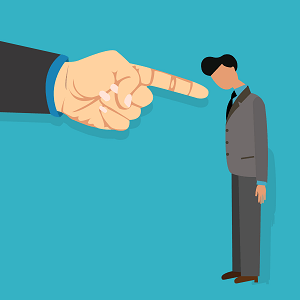Podcast: Play in new window | Download

I’m Dan Lukasik from Lawyerswithdepression.com. Today’s guest is Dr. Margaret Wehrenberg. Dr. Wehrenberg is a clinical psychologist in Naperville, Illinois. She is the author of six books on the treatment of anxiety and depression published by W.W. Norton, including, “The Ten Best-Ever Depression Management Techniques: Understanding How Your Brain Makes You Depressed and What You Can Do to Change It” and “Anxiety + Depression: Effective Treatment of the Big Two Co-Occurring Disorders.” An international trainer of mental health professionals, Dr. Wehrenberg coaches people with anxiety via the internet and phone. She’s a frequent contributor to the award-winning magazine, Psychotherapy Networker and she blogs on depression for the magazine Psychology Today.
Dan:
What is the difference between sadness and depression and why do people confuse the two so often?
Dr. Wehrenberg:
Because depression comprises sadness. Sadness is a response to a specific situation in which we usually have some kind of loss. The loss of a self-esteem, a loss of a loved one, the loss of a desired goal. Depression is really more about the energy – whether it’s mental energy or physical energy – to make an effective response. So, sadness is an appropriate and transient emotion, but depression sticks around and affects all of our daily behaviors and interactions.
Dan:
What causes depression? Sadness, as you say, is an appropriate response to loss. What is depression a response to? What are the causes of depression?
Dr. Wehrenberg:
Over the course of my career, I’ve developed the idea that there are four potential causes to depression. This comes from working with people for forty years; it comes from reading a lot of research.

The first part is genetics. You are born with a brain that is going to tend toward depression because of the function of neurotransmitters in your brain. It’s a genetic predisposition towards depression. With poor self-care, poor nutrition, you may end up stimulating or starting that feeling of low energy, of low interest in the world around you. Then if you pull back from the world around you, now you start to have fewer experiences that keep you interested in the world.
Another possible and probable cause is with people who are experiencing situational stress that goes on, and on, and on. That could be the stress of not being able to earn enough money, and you’ve got two jobs, and kids, and a life filled with stress. It could be the stress that comes on while caring for someone in your family circle who’s got a disability, or a chronic illness; that increases with severity over time. So, you’re stuck in stress, and you deplete yourself. And you can become depressed.
The state of the depression is a lot like the state of being sick. If you had the flu, you wouldn’t feel like sitting around eating and drinking; you wouldn’t feel like playing a round of tennis. If somebody says, “Let’s watch a really interesting T.V. show” and you say, “No, I want to go to sleep instead,” that’s pulling back from the world is healing. People have the same feeling when they’re depressed, but those feelings don’t lead toward healing because they’re persistent.
Two other causes that people would certainly be aware of are trauma or coming from early childhood adversity where early in your childhood you were not treated well, you were neglected, had some other abusive situation, and those two very difficult situations can lead people to function in a depressed way.
Dan:
Let’s talk about the issue of stigma. As a person who’s had depression for the past 15 years, it’s something that I’ve had to deal with. Why is there so much stigma surrounding depression?
Dr. Wehrenberg:
Part of it is because we have this mentality in this country that you should be able to pull yourself up by your bootstraps. And we look at people who are low energy, who aren’t completing tasks, and we judge them as doing it on purpose. People who aren’t depressed are of the impression that you could just decide to do it differently.
I was speaking with a 21-year old client of mine the other day who said, “I can’t make myself do the work, and I hate it that I am that lazy.” So, he judges himself as lazy, even though it’s the depression that’s robbing him of energy and mental tenacity. So, even depression sufferers judge themselves to be wrong, lazy, and bad and believe they should do better. So, I think the cultural expectation that you should be more productive. Also, people don’t see it as the medical problem it is. It’s just that it’s not a very “visible” medical problem.
Dan:
In the past 40 years or so that you’ve been a therapist and have treated people with depression, what have you observed about the rate of depression in our country and our understanding of it?
Dr. Wehrenberg:
I think the rate of depression, everybody would agree, is growing. More and more people are suffering depression.

There are different reasons why when we look at this.
Culturally, one of them is that American culture is a highly stressed culture. But it’s stress not over life and death, but that’s certainly the case for many living in poverty who have to worry where their next meal is coming from, but usually, what we look at is the stress of always needing to be more, to do more, to get more status and money. That’s not a very good way to feel good about yourself because there’s a limit, a human limit of time, a limit of money, a limit of talent or ability, a limit to resources or access to achievement.
Dan:
Following up on what you just said earlier, you talked about some possible causes of depression including genetics and family of origin issues. Now you’re talking about American culture and its connection to depression. What is the connection?
Dr. Wehrenberg:
We have a culture that values productivity, money, and status, and not everybody can achieve goals of status or financial success and it gets depressing to see how valuable those seem to be in our country.
We don’t value something everybody can do. Like, be a person of good character. We value how much status you’ve got, which is very different.
Dr. Andrew Weil, who is a real guru of physical health and mental health, says he thinks that stress equals inflammation in your whole body and that inflammation is a trigger for depression.
Dan:
Why did you write the book, “The Ten Best-Ever Depression Management Techniques?” It’s a great read. I recommend all my listeners and readers at lawyerswithdepression.com to pick it up.
Dr. Wehrenberg:
I wrote it because I believe both consumers and therapists need ideas for what to do right now other than to investigate, in some more general way, a life history, what do you do today that will make you feel somewhat better, to start you moving out of the depression. I wanted to present as many practical ideas as I could that would help people start to lift out of depression with the help and advice of a therapist and also for the general public that could read this book and say, “Oh, there are things I can do that would make me feel better.” And they’re simple; they’re not complicated.
Dan:
Can you share with our listeners some of the techniques you recommend in your book?
Dr. Wehrenberg:
Let’s start with somebody with low energy. Almost everybody who is depressed is doing something even while they are depressed. Playing a game on their phone, watching T.V. or watching Netflix. They are doing something. Unless, they are sleeping, of course. But I want to use what you’re already doing to help motivate you to do something you think you should do. So, for example, I often see people with depression that aren’t doing good health care, they’re not doing good care of their environment, they are not doing dishes, they are not doing laundry, stuff like that. So if you just think about household stuff for a second, what I want my clients to do is to break down the task into its parts.

If you’re going to do laundry, the first thing you have to do is pick it up off the floor. So, I don’t want you to think, “Oh, I’ve got to get all the laundry done.” If you’re depressed, that won’t work. What I want you to do is think is, “All I have to do is pick up the dirty clothes in the family room and then I’m going to sit down for 15 minutes and do what I’m willing to do anyway – play a game on the phone, turn on Netflix. Set a timer for 15 minutes of enjoyment of your show and then when the timer goes off, you just get up and pick up the clothes off the floor of your bedroom. Little pieces, okay.
What we know about depression is those small accomplishments are perceived in the brain as positive and encouraging, and you start to feel, “Oh, I can do something for myself.” You begin to have just a little rise in your overall energy. If you can do that consistently, then pretty soon, you get the task of doing the laundry over with. It may take a few days, but it’s done. Then you have a positive self-appraisal. That’s what I’m going for, for example, with a very simple way to think about raising your energy through small increments.
Dan:
So the small steps and small behaviors affect neurochemistry?
Dr. Wehrenberg:
They do, indeed. Because when you take action and it has a positive outcome, you have just changed the level of the neurochemical called dopamine, which I call the “James Brown” of the brain. It’s the “I feel good,” when dopamine is released in your brain you feel better. We know that people who decide, “I am going to do this,” and do it, they get a rise in dopamine and change your neurochemistry.
Dan:
I want to discuss your second book, “Anxiety + Depression: Effective Treatment of the Two Co-Occurring Disorders.” I struggle with both anxiety and depression with depression being the primary diagnosis. Many people I meet struggle with both. Why do the two co-occur together and sometimes not?
Dr. Wehrenberg:
Very often, if you are looking at brain function and structure, what you see in people who have both anxiety and depression, which, by the way, is about fifty-percent of the time, is that people who have one, have the other. Often, the anxiety comes first, and it’s not treated well. There’s a neurochemical called serotonin which is related to something called rumination or you might think of it as “brooding.” When people brood, when they go over and over a failure or fear, they get stuck mentally. It raises anxiety because it’s hard to solve a problem that you’re just brooding about and it raises depression because you don’t feel like you’re moving very much in your behavior or your thinking. That’s a pretty simplistic statement. And people will say, yes, but there are far more theories about the underlying neurochemistry. That’s true, but the chemistry that relates to brooding is related to both anxiety and depression, the repetitive, negative thinking.
Dan:
Regarding your history as a therapist treating people with anxiety and depression, are there some techniques that work better with anxiety versus depression? Or, do all these techniques work equally well with both conditions?
Dr. Wehrenberg:
I think you have to look at the energy level. Some people with anxiety and also depression have a fair amount of energy to cope with the depressive quality of repetitive, negative thinking. And you use the energy of that anxious person to be more assertive with yourself to say, “I’m going to take charge of this.”
But what I also find that works very well with anxiety and depression together is to work on mindful awareness, to try to stay in the moment, not to try to predict a negative outcome, but rather to pull yourself into the moment. And mindfulness, which can be done by meditating to stay in the present moment, but you can also just keep pulling yourself back to this moment by saying to yourself, “What’s happening now?” This pulls you back from predicting negative outcomes and then getting upset about what might happen. If you stay in the now, you can say I can do this activity now, this action now, and all I have to worry about is now. And then you tend to get better outcomes. So, that’s good for both for anxiety and depression.
Anxiety is “I worry about the future; I fret about the past.” And depression includes, “I think the future will be grim.” So if you stay in the moment, you’re addressing both of them.
Dan:
As a psychologist and therapist who’s worked with people with anxiety and depression for decades, tell us a little bit why a person struggling with depression and anxiety should see a psychologist, a therapist? What benefit could be obtained from seeing someone such as yourself and how does that work?
Dr. Wehrenberg:
We know that medication, which is often people’s first choice, can be extremely helpful. But what I say to my clients is that medication can help you feel somewhat better, but it doesn’t teach you anything about managing your life. Psychotherapy, when it’s practical, when I’m looking at it through the “The Ten Best-Ever Depression Management Techniques,” what it’s teaching you is how to handle your negative mood, what to do when you don’t have energy. It’s teaching you behavior that will rewire your brain. It talks about how and why exercise and nutrition are important.
But also why taking even a small action on your behalf changes your neurochemistry. So, psychotherapy immediately affects brain function. But, you usually need a psychotherapist to give you ideas, help you find ideas of how you stop yourself, how you block yourself, and to help you find the most effective tools for you in your specific situation. A psychotherapist can be very helpful in teaching you how to get rid of these negative symptoms and feel better for life.
Dan:
Dr. Wehrenberg, what’s the best way for our listeners and readers to get in contact with you?
Dr. Wehrenberg:
Well, if you’re able to spell my name, you can look me up on Margaretwehrenberg.com. I work in Naperville, Illinois. But my website has my telephone contact and a link. And if you went to the Psychology Today magazine website, you can look at my blog on depression, and you would be able to contact me through there as well. I have a really good “Contact me” on my website.
Dan:
On behalf of your listeners at Lawyerswithdepression.com., I want to take the time to thank you for this insightful interview. I think it’s going to help many people.
Dr. Wehrenberg:
Thank you for having me. I appreciate it.






















